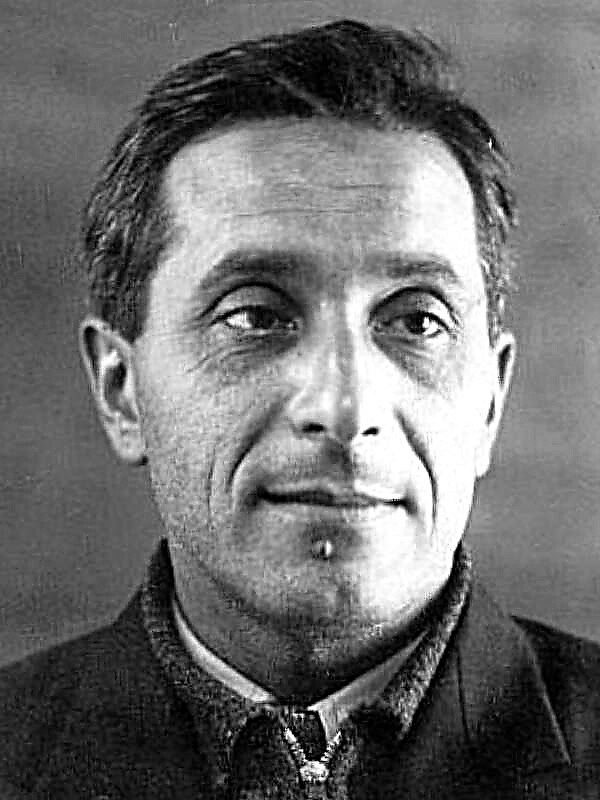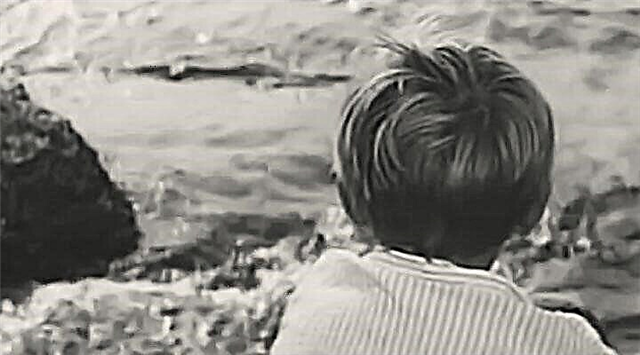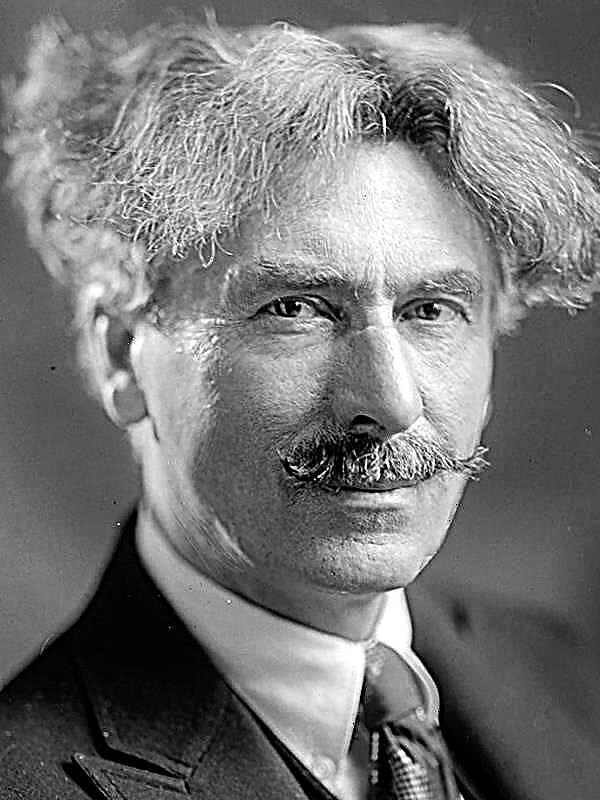Prince Gonzaga, ruler of the Italian province of Guastella, examines the portrait of Countess Orsina, a woman whom he had loved just recently. He was always with her easy, joyful and fun. Now he feels differently. The prince looks at the portrait and hopes to find again in it that which he no longer notices in the original. It seems to the prince that the artist Conti, who had fulfilled his long-standing order, too flattered the countess.
Conti reflects on the laws of art, he is pleased with his work, but annoyed that the prince judges him no longer with the “eyes of love”. The artist shows the prince a different portrait, saying that there is no original more admirable than this. The prince sees on the canvas Emilia Galotti, the one that has been constantly thinking about in recent weeks. With casual negligence, he remarks to the artist that he knows this girl a little, once he met her with his mother in the same company and talked to her. With the father of Emilia, an old warrior, an honest and principled man, the prince is in a bad relationship. Conti leaves the prince a portrait of Emilia, and the prince pours out his feelings in front of the canvas.
Kamerger Marinelli announces the arrival of Countess Orsina in the city. The prince lies with the countess's newly received letter, which he does not want to read. Marinelli expresses sympathy for the woman who “thought” to seriously love the prince. The marriage of the prince with the princess of Massana is approaching, but this does not disturb the countess, who agrees to the role of the favorite. The astute Orsina is afraid that the prince has a new lover. The countess seeks solace in the books, and Marinelli admits that they "completely bore her." The prince judiciously remarks that if the countess goes mad with love, then sooner or later it would have happened to her without love.
Marinelli informs the prince about the upcoming wedding of Count Appiani on this day; until now, the Count’s plans have been kept in the strictest confidence. The noble count will marry a girl without a fortune and position. For Marinelli, such a marriage is a “wicked joke” in the fate of the count, but the prince is envious of anyone who is able to completely surrender to the “charm of innocence and beauty”. When the prince finds out that the count's chosen one is Emilia Galotti, he becomes desperate and confesses to the chamberlain that he loves Emilia, “prays for her.” The prince seeks sympathy and help from Marinelli. He cynically reassures the prince, it will be easier for him to achieve Emilia’s love when she becomes Countess Appiani, that is, a “second-hand goods”. But then Marinelli recalls that Appiani does not intend to seek happiness at court, he wants to retire with his wife to his Piedmontese possessions in the Alps. Marinelli agrees to help the prince on condition of giving him complete freedom of action, to which the prince immediately agrees. Marinelli invites the prince on the same day to hurriedly send the count as an envoy to the duke of Massana, the father of the prince’s bride, thereby having to cancel the count’s wedding.
At Galotti's house, Emilia's parents are waiting for a daughter from the church. Her father Odoardo worries that because of him, whom the prince hates for intransigence, the count will finally deteriorate in relations with the prince. Claudia is calm, because at the evening at the chancellor the prince showed favor to their daughter and was apparently fascinated by her gaiety and wit. Odardo is alarmed, he calls the prince “voluptuous” and reproaches his wife in vanity. Odardo leaves, without waiting for his daughter, to his family estate, where a modest wedding will soon take place.
An agitated Emilia comes running from the church and tells her mother in dismay that the prince approached her in the temple and began to make love, and she hardly escaped him. Mother advises Emilia to forget everything and hide it from the count.
Count Appiani arrives, and Emilia notices, jokingly and gently, that on the wedding day he looks even more serious than usual. The Earl admits that he is angry with friends who urge him to inform the prince about the marriage before it is completed. The count is about to go to the prince. Emilia dresses up for the wedding and chatts merrily about her dreams, in which she saw pearls three times, and pearls mean tears. Count thoughtfully repeats the bride's words about tears.
Marinelli appears in the house and, on behalf of the prince, gives the Count an order to immediately go to the Duke of Massana. The count declares that he is forced to refuse such honor - he will marry. Marinelli ironically speaks of the simple origin of the bride, of the accommodatingness of her parents. The count, angry at Marinelli's vile allusions, calls him a monkey and offers to fight a duel, but Marinelli leaves with threats.
At the direction of Marinelli, the prince arrives at his villa, past which passes the road to the estate of Galotti. Marinelli sets out to him the contents of the conversation with the count in his interpretation. At this moment, shots and screams are heard. These two criminals hired by Marinelli attacked the count’s carriage on the way to the wedding to kidnap the bride. Protecting Emilia, the count killed one of them, but was mortally wounded. The servants of the prince lead the girl to the villa, and Marinelli gives the prince instructions on how to behave with Emilia: not to forget about her art to please women, to seduce and convince them.
Emilia is scared and worried; she does not know the state in which her mother and count remained. The prince takes the trembling girl away, comforting her and assuring her his thoughts are clean. Soon the mother of Emilia appears, having just survived the death of the count, who managed to pronounce the name of his true killer - Marinelli. Marinelli himself accepts Claudia, and she unleashes curses on the head of the killer and the "pander."
Behind Emilia and Claudia, the Prince learns from Marinelli about the Count’s death and pretends that this was not his plan. But the chamberlain has already calculated everything in advance, he is confident in himself. Suddenly they report the arrival of Countess Orsin, and the prince hastily hides. Marinelli makes it clear to the Countess that the prince does not want to see her. Upon learning that the prince has a mother and daughter Galotti, the countess, already aware of the murder of Count Appiani, realizes that it happened by conspiracy between the prince and Marinelli. The woman in love sent “spies” to the prince, and they tracked him to a long conversation with Emilia in the church.
Odoardo is looking for a daughter after hearing about a terrible incident. The countess pities the old man and tells him about the meeting of the prince with Emilia in the temple shortly before the bloody events. She suggests that Emilia could have conspired with the prince about the murder of the count. Orsina bitterly tells the old man that now his daughter expects a beautiful and free life in the role of the favorite of the prince. Odardo is furious and is looking for weapons in the pockets of his camisole. Orsina gives him the dagger she brought - to take revenge on the prince.
Claudia comes out and exhorts her husband that her daughter "keeps the prince at a distance." Odardo sends his exhausted wife home in the Countess’s carriage and goes to the Prince’s chambers. He reproaches himself for believing the countess, who is maddened by jealousy, and wants to take his daughter with him. Odardo tells the prince that Emilia can only go to the monastery. The prince is bewildered, such a turn of events will violate his plans for the girl. But Marinelli comes to the aid of the prince and launches obvious defamation. He says that according to rumors, the count was not attacked by robbers, but by a man who uses Emilia's favor to eliminate his opponent. Marinelli threatens to call the guard and accuse Emilia of conspiring to kill the count. He requires the interrogation of the girl and the trial. Odardo feels that he is losing his mind and does not know whom to believe.
Emilia runs out to her father, and after the very first words of her daughter the old man is convinced of her innocence. They remain together, and Emilia is indignant at the perfect violence and arbitrariness. But she confesses to her father that she fears temptation more than violence. Violence can be repulsed, and the temptation is worse, the girl is afraid of the weakness of her soul before the temptation of wealth, nobility and seducing speeches of the prince. Great is the grief of Emilia from the loss of her groom, Odoardo realizes this, he himself loved the count as his son.
Emilia makes a decision and asks her father to give her a dagger. Having received it, Emilia wants to stab herself, but the father pulls out a dagger - he is not for a weak female hand. Removing the still-surviving wedding rose from her hair and picking off her petals, Emilia begs her father to kill her in order to save her from shame. Odoardo stabs his daughter. Emilia dies in her father’s arms with the words: “They plucked the rose before the storm took its petals ...”












